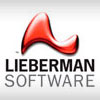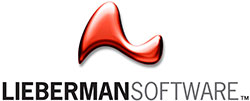
Fear of Governments Snooping Deters Companies From Using the Cloud
 Almost half of IT experts are deterred from keeping sensitive data in the cloud because of fear of government intervention and possible legal action, according to a new survey from Lieberman Software that was released this week.
Almost half of IT experts are deterred from keeping sensitive data in the cloud because of fear of government intervention and possible legal action, according to a new survey from Lieberman Software that was released this week.
The survey looked at IT and cloud experts’ attitudes to storing data in the cloud and revealed that government and legal interference puts 48% of them off from entering the cloud environment. These figures highlight that IT managers are deterred from the cloud, because they are unsure if their organization’s sensitive data is adequately protected and will, in turn, pass IT security audits or government regulatory checks that hosted cloud environments are subjected to.
Commenting on the research, Philip Lieberman, president of Lieberman Software, said, “There are a number of reasons why IT experts might be apprehensive about storing corporate data in the cloud. However, in my opinion, the key issues are around government surveillance, cloud legislation and data security. IT managers fear that they will put their data at risk by moving to a cloud provider, as they [IT managers] are unsure they [the cloud provider] will keep the data properly protected, which could ultimately affect their job and their business.
“The other issue is around legislation in the cloud and the fact that IT managers do not want governments snooping around in their corporate data. If a government or official body wanted to see what data a company was holding in the cloud, the cloud host involved would be legally obliged to provide them with access. This means there is very limited privacy in cloud environments. IT managers know it is much easier to hide data within their own private networks.”
Other results from the survey revealed that 88% think there is a chance that some of their organizations’ data, hosted in the cloud, could be lost, corrupted or accessed by unauthorized individuals; 86% don’t trust the cloud for their organization’s more sensitive data; and 51% of those surveyed don’t trust the cloud for any of their personal data.
The survey was conducted at the Cloud Security Alliance (CSA) Congress among 300 IT professionals. 70% of survey participants were from companies with more than 1,000 employees, while 50% had more than 5,000 employees.